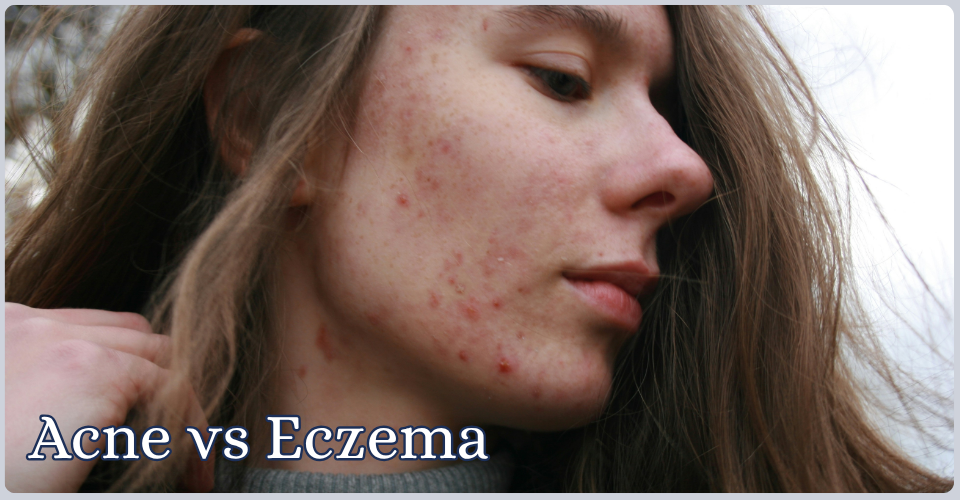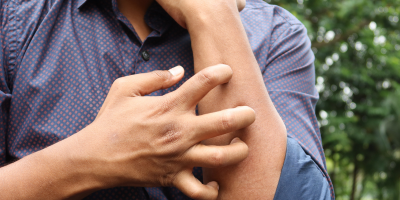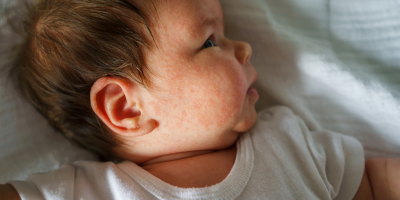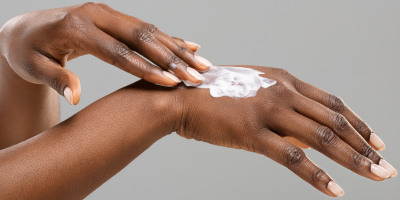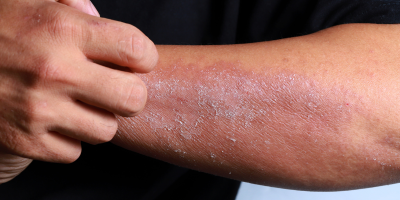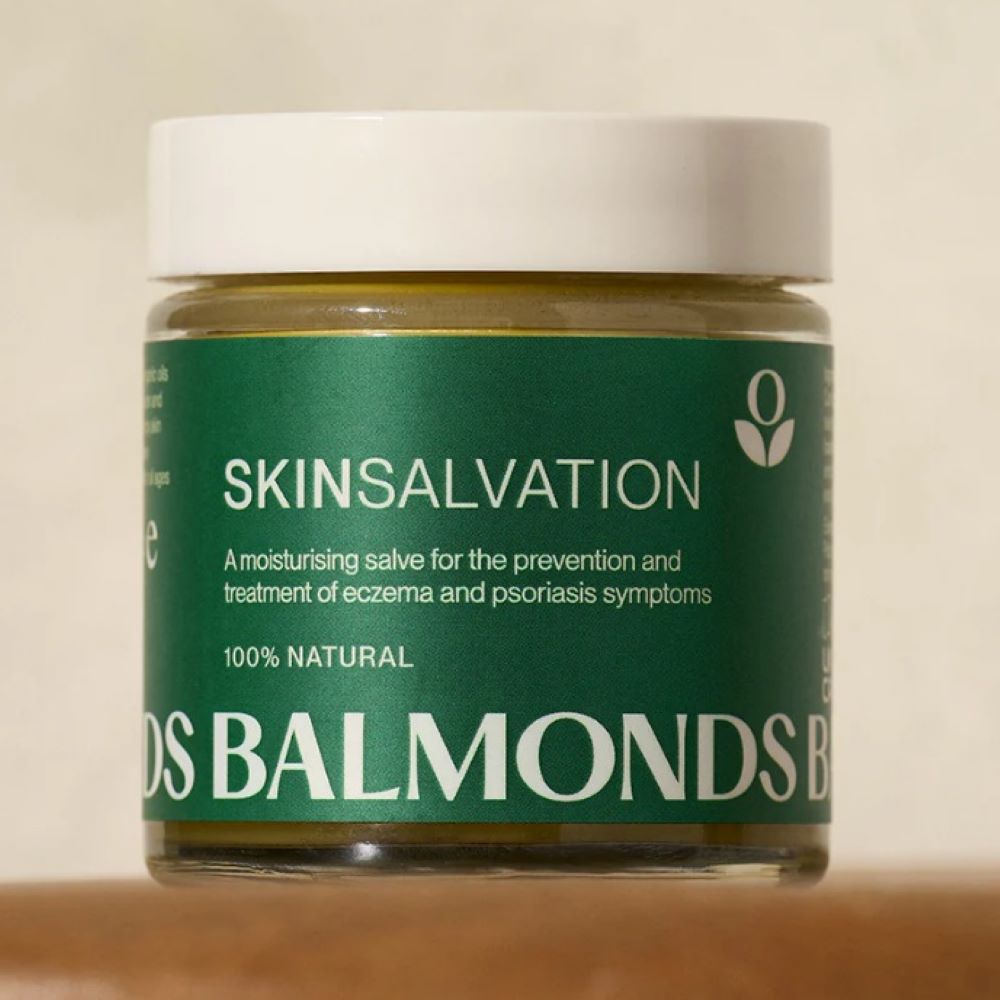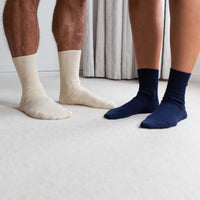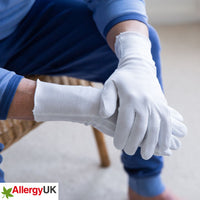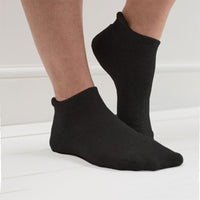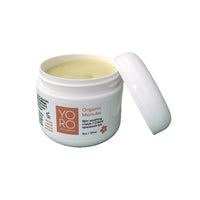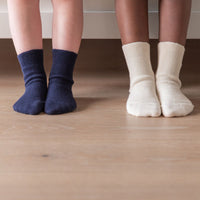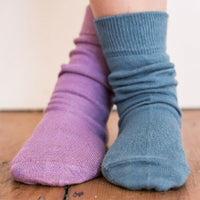In this blog series, Cotton Comfort explores the challenges of Topical Steroid Withdrawal (TSW), a condition that affects many eczema sufferers. Guest blogger Lauren Bell, founder of Cosi Care, shares her personal journey with TSW and her experience as both a sufferer and a carer.
Part One
Lauren and her brother Rhys both started using steroid creams at a young age to manage their eczema, but noticed flare-ups would return as soon as they stopped using the steroids. This cycle led Lauren to realise that the steroids and how they were discontinued were contributing to the flares, a condition now known as Topical Steroid Withdrawal.
After years of using and stopping steroids, Lauren completely discontinued them, entering an 8-month withdrawal period before her skin "felt like her own" again. Inspired by his sister’s journey, Rhys, who has severe eczema, also began his own withdrawal process, experiencing painful symptoms.

Lauren quickly transitioned from being a TSW sufferer to a carer, gaining invaluable insight into the condition. In this series, she shares her experience of recovery and how she now supports Rhys as he undergoes the same journey.
What is Topical Steroid Withdrawal?
Topical Steroid Withdrawal (TSW), also known as Red Skin Syndrome, is a poorly understood and often misdiagnosed condition. It occurs when the skin reacts to the discontinuation of topical steroids (TCS), used to treat eczema and other skin conditions. For many patients, the symptoms of TSW can seem like a severe flare-up of eczema, leading to confusion and improper treatment.
While the condition is gaining awareness, many doctors still do not recognise TSW, and there’s no universal agreement on how to diagnose or treat it.

What are Topical Steroids for Eczema?
Topical corticosteroids (TCS) have been used in the treatment of eczema for over 50 years and can be offered in the form of a cream, ointment, oil, gel, lotions, even shampoos. They work directly with the body to reduce inflammation, and are meant to be similar to corticosteroids made by the adrenal glands in the body.
Mild steroids can be purchased over the counter, and many are prescribed by doctors or dermatologists. While some patients use these successfully, for others steroid use causes TSW, leading to symptoms significantly worse than their original skin condition. But how many people have the condition and what amount of steroids may cause it, is as yet unverified.

TSW Symptoms
The International Topical Steroid Awareness Network, ITSAN, describes TSW as:
“TSW Syndrome is an iatrogenic condition, which means it is a condition caused inadvertently by a medical treatment. Not everyone who uses topical steroids will develop TSWS. It is unclear why some individuals experience TSW secondary to topical steroid therapy and why others do not.”
Symptoms of TSW can vary widely, but commonly include:
- Burning, itching, and redness of the skin
- Weeping, flaking, peeling, and cracking
- Swelling, thinning skin, and pus-filled bumps
- Insomnia, fatigue, hair loss, and depression
These symptoms can be easily mistaken for a worsening eczema flare-up, making diagnosis difficult.
What Causes Topical Steroid Withdrawal?
Topical Steroid Withdrawal (TSW) occurs when the body experiences a severe reaction after discontinuing the use of topical corticosteroids (TCS), which are commonly prescribed to manage conditions like eczema, psoriasis, and dermatitis. The condition arises when the skin becomes dependent on the steroids after prolonged use, leading to a series of withdrawal symptoms once the treatment is stopped.
Steroid Dependency and Skin Rebound
Topical steroids, such as hydrocortisone or betamethasone, work by reducing inflammation and controlling flare-ups. However, when used for extended periods, the skin can build a tolerance to these steroids, requiring higher doses for the same effect. The body may also become reliant on the steroids to maintain normal skin function, which results in a form of steroid dependence.
When steroid use is stopped abruptly or reduced too quickly, the skin’s natural barrier function is compromised, causing a “rebound” effect. This leads to the worsening of the initial condition, which is now compounded by the withdrawal symptoms of TSW.
The Role of the Skin's Barrier Function
The skin relies on its natural barrier to protect against irritants and allergens, maintain hydration, and regulate temperature. Prolonged use of steroids weakens this barrier, thinning the skin and reducing its ability to heal and function properly. Once steroids are discontinued, the skin struggles to repair itself, triggering intense symptoms like burning, swelling, and severe itching—hallmarks of TSW.
Unknown Triggers and Individual Sensitivity
The exact cause of why some people develop TSW while others don’t is not fully understood. Some researchers believe that individual sensitivity to steroids, the potency of the steroids used, and the duration of use all play a role. Genetics may also contribute, as some people may be more prone to developing steroid dependence or experiencing more severe withdrawal reactions.
Lauren's Experience with TSW
The journey I had with my skin and TSW, and the journey my brother, Rhys, had were very different. It's important to talk about both as TSW symptoms and experiences vary so much from person to person, even between siblings! From timeline to management techniques - there is no one size fits all solution.
I started using mild steroid creams when I was seven or eight years old. At the age of seven I had small eczema patches on my hands and some redness on my cheeks. These disappeared as a child but came back when I was at university (due to the stress around exams, deadlines and poor diet!). I visited a doctor who prescribed mild steroid creams including hydrocortisone and I would use them sparingly on my hands and neck exactly as instructed. After a week of using these creams, as directed by my doctor, the eczema flare would disappear but as soon as I stopped using the creams my rash would come back worse and spread to other areas on my body where I had not previously had any issues. I would go back to my doctor with what seemed like a worse “eczema flare” and each time I would be offered stronger steroid creams.
Each time I stopped, the impact on my flares would get even worse, and the whole situation would spiral out of control. This went on for years, and now looking back I feel this was misdiagnosed as “worsening eczema” when really it was the impact of the steroid creams on my body that was causing my worsening symptoms. My skin got thinner and weaker, my rashes spread, my skin tone turned red and I became more reactive and sensitive to cosmetics and even sunlight.
After 4 years of using steroid creams on and off, with my symptoms intensifying during a flare and feeling an overall imbalance throughout my body, I stumbled across some information online about TSW. So many of the symptoms resonated with me and something just clicked. My gut feeling of “something isn’t right” suddenly had a justification and a possible explanation. I decided to stop the medication as I no longer felt it was the solution I first hoped for.
I stopped using steroid creams and what followed was one of the most challenging years of my life. My skin had the worst flare ever after two weeks of not using any medication. My face swelled until my eyes shut; the skin on my hands, arms and neck turned thick, red and no amount of moisturiser could improve the tightness and dryness. I became extremely reactive to all make-up, chemicals, cosmetics and I was worried I would never be able to find a balance with my body again. I was anxious that I could never wear make-up, or feel good in my skin.
These symptoms lasted for 8 months before they began to subside. The longer time went on, the stronger my skin felt, the redness improved, the dryness and “elephant skin” started to disappear and I started to look like me again.

Rhys’s Journey with TSW
My journey and the successful results stopping steroids prompted and inspired my younger brother, Rhys, to start this journey too. He had a much more intense dependence on steroid creams as he has had “severe eczema” (which we now know was TSW) since the age of 3 and his steroid cream use lasted over 20 years on a constant basis.
I was so worried about what Rhys was about to face and I still am, as he is still currently going through the harrowing process after nearly 10 months off the medication. The first 3 months were agony for him. Me and my family were by his side full-time as simple tasks such as cooking, changing bed sheets and washing were impossible. I had gone from TSW suffer to TSW carer, and I used my understanding and experience to guide and help my brother and parents through this.
His skin was burning red all over his body, deeply itchy, and so agonising that even showering was impossible. He didn’t sleep; physically and mentally he was struggling. After 10 months the improvement in his skin, health and body has been unbelievable. Even though he has a long way still to go, today, he can function normally again and is gradually doing more and more.
TSW is extremely difficult to overcome, and it was great to see him improving. Our family came together to support Rhys, but I think being a carer for someone in this condition is so difficult. If you are currently supporting someone through TSW, you are an absolute hero in my eyes!

Key Insights on Topical Steroid Withdrawal
Topical Steroid Withdrawal (TSW) is a condition caused by the cessation of long-term topical steroid use, leading to severe skin reactions. The symptoms, which include intense itching, burning, redness, and skin shedding, are often mistaken for a worsening of eczema. The recovery process can be long and challenging, typically taking months, but with time and proper support, improvement is possible. If you're caring for someone going through TSW, your understanding and patience are crucial to their recovery journey.
Stay tuned for Part 2, where Lauren outlines the actions she took to help herself and her brother cope and recover from TSW.
To find out more information on TSW, take a look at these resources:
- ITSAN - The International Topical Steroid Awareness Network
- Dr. Marvin Rapaport's TSW Videos
- Documentary: Skin on Fire
Disclaimer: The information within this site is for education and advocacy purposes and does not substitute for professional medical advice. We would not advise that you alter any medication without prior discussion with a medical professional.



